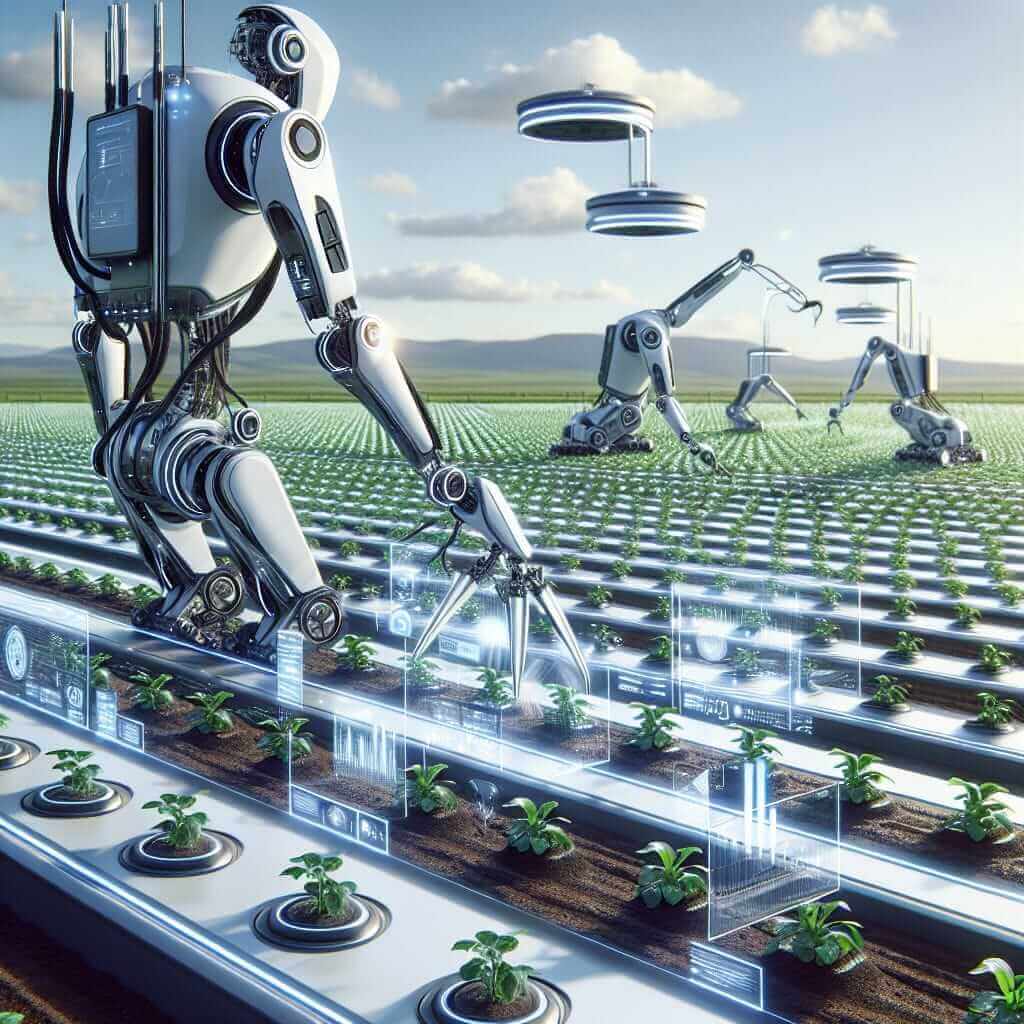The IELTS Reading test is a crucial part of the exam, designed to evaluate your reading comprehension skills through a variety of texts. One contemporary topic that has gained popularity and might appear in an IELTS Reading test is “How is technology reshaping the food and beverage industry?” This subject is not only relevant and timely but also lends itself to a range of question types you could encounter on the IELTS exam. In this article, we will guide you through a detailed practice reading based on this topic, complete with an IELTS-format test, answer keys, vocabulary lists, and grammar notes.
Practice Reading Test
Reading Passage: How Technology is Reshaping the Food and Beverage Industry
[Passage Type: Medium Text]
The food and beverage industry has undergone significant changes due to the rapid advancement of technology. From farm to table, every aspect of the industry is being transformed to improve efficiency, quality, and sustainability.
One of the most notable technological advancements is the use of Artificial Intelligence (AI) and Machine Learning (ML) in farming. These technologies help farmers predict crop yields, monitor soil health, and automate irrigation systems. Drones are also used to survey large areas of farmland, providing real-time data that can be used to make more informed decisions.

In food production, innovations like 3D printing are beginning to make waves. This technology allows for the creation of customized food items, which can be particularly beneficial for people with dietary restrictions. Additionally, robotics is playing a crucial role in automating repetitive tasks, reducing labor costs, and minimizing human error.
The rise of the Internet of Things (IoT) is another major influence on the industry. IoT devices are used to track and manage inventory more efficiently, ensuring that food is stored correctly and delivered on time. These devices can also be used to monitor the conditions in which food is stored, reducing the risk of contamination and spoilage.
In the context of food safety, blockchain technology is being implemented to ensure transparency and traceability in the supply chain. Blockchain provides a secure, immutable record of every transaction, making it easier to track the origin and history of food products. This can be especially important in the event of a foodborne illness outbreak.
Consumer preferences are also shaping the food and beverage industry, with a growing demand for sustainable and ethically sourced products. Technology is helping to meet these demands by facilitating the development of plant-based and lab-grown meats. These alternatives not only have a smaller environmental footprint but also help address ethical concerns related to animal welfare.
In conclusion, technology is playing a pivotal role in reshaping the food and beverage industry. From AI and ML in farming to blockchain in food safety, these advancements are driving the industry towards a more efficient, transparent, and sustainable future.
Questions
-
Multiple Choice:
- Which technology helps farmers predict crop yields and monitor soil health?
- Drones
- Internet of Things (IoT)
- Artificial Intelligence (AI)
- Blockchain
- Which technology helps farmers predict crop yields and monitor soil health?
-
True/False/Not Given:
- Statement: 3D printing technology is used in farming to improve crop yields.
- True
- False
- Not Given
- Statement: 3D printing technology is used in farming to improve crop yields.
-
Matching Information:
-
Match the technological advancement to its function:
-
Robotics
- A. Tracks and manages inventory
- B. Automates repetitive tasks
- C. Provides a secure record of transactions
- D. Surveys large areas of farmland
-
Internet of Things (IoT)
- A. Tracks and manages inventory
- B. Automates repetitive tasks
- C. Provides a secure record of transactions
- D. Surveys large areas of farmland
-
-
-
Sentence Completion:
- The use of blockchain technology in the food and beverage industry ensures ____ and ____ in the supply chain.
Answer Key
-
Multiple Choice:
- Answer: 3. Artificial Intelligence (AI)
-
True/False/Not Given:
- Answer: False
-
Matching Information:
- Robotics: B. Automates repetitive tasks
- Internet of Things (IoT): A. Tracks and manages inventory
-
Sentence Completion:
- Answer: transparency, traceability
Common Mistakes
- Misinterpreting the question prompt for True/False/Not Given.
- Matching tasks incorrectly by not reading the passages carefully.
- Overlooking specific details in multiple-choice questions.
Vocabulary
-
AI (Artificial Intelligence) (noun) – /ˌɑːrtɪˈfɪʃəl ɪnˈtɛlɪdʒəns/
- Definition: The simulation of human intelligence processes by machines, especially computer systems.
-
Blockchain (noun) – /ˈblɒkˌʧeɪn/
- Definition: A system in which a record of transactions is maintained across several computers linked in a peer-to-peer network.
-
Sustainability (noun) – /səˌsteɪnəˈbɪlɪti/
- Definition: The ability to be maintained at a certain rate or level.
-
Traceability (noun) – /ˌtreɪʃəˈbɪlɪti/
- Definition: The ability to verify the history, location, or application of an item by means of documented recorded identification.
Grammar Focus
-
Passive Voice:
- Used to emphasize the action rather than the subject performing the action.
- Example: “Blockchain technology is being implemented to ensure transparency.”
-
Present Continuous Tense:
- Used to describe actions that are currently happening.
- Example: “Technology is playing a pivotal role in reshaping the industry.”
Tips for High Reading Scores
- Practice Regularly: Consistent practice with a variety of reading materials will improve your comprehension skills.
- Expand Your Vocabulary: A robust vocabulary allows for better understanding and quicker reading.
- Manage Your Time: Allocate time wisely to ensure you can answer all questions.
- Understand Question Types: Familiarize yourself with the different types of questions to formulate effective strategies.
- Review Mistakes: Analyzing errors helps prevent them in future practices.
Follow these steps, and you’ll be on your way to achieving a high score on the Reading section of the IELTS.